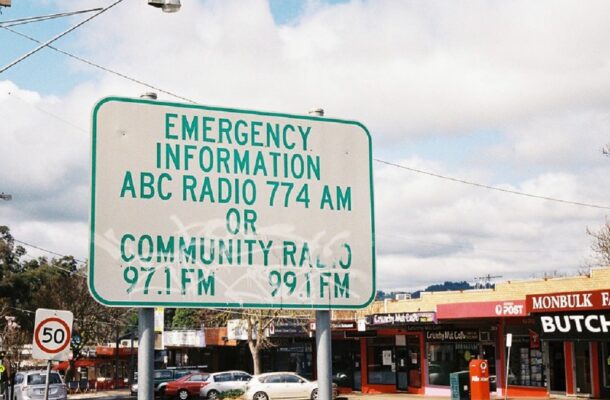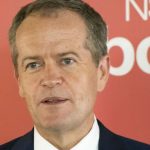A voice for the nation

Australia’s soft power capability derives in-part from its ability to distribute information coherently, correctly, and functionally. Over the years, the connective tissue between policy aims and values in this space has loosened to the detriment of Australian interests.
Instigated more from reactive political angst than reasonable government foresight, the Australian Broadcasting Corporation’s media services, designed for foreign publics, have been undergoing a modest revival. This is a decade after reaching a point of almost terminal decline during the brief prime ministership of Tony Abbott. Not least, regional instability and fear of China’s assertiveness in the Pacific has once more drawn attention to the capacity of fit-for-purpose international broadcasting to help shape the battlefield of soft power.
The incoming Labor government last year announced it would develop an Indo-Pacific Broadcasting Strategy (and a review of the foreign aid program). Labor committed an additional AUD$8 million p.a. for international broadcasting services on top of an estimated AUD$11 million the ABC already expended on mainly English language TV, Radio Australia, and online platforms.
An expanding ABC team is implementing this latest policy turn in three ways: content offerings tailored for intercultural audiences, the activation of additional FM relay transmitters in Papua New Guinea and the Pacific, and a respected program of media development and capacity building. All contribute to people-to-people engagement and the nurturing of an open marketplace of ideas.
Generally, the Pacific is a welcoming environment for the ABC’s international revival, so long as the broadcaster continues to uphold principles of respectful engagement, cultural intelligence, and a collaborative approach to region-building. At other times, and in differing political or cultural contexts, state-funded international broadcasting takes on a harder edge, not least in jurisdictions where it is not wanted by illiberal or authoritarian regimes.
As argued in my just-released book (International Broadcasting and Its Contested Role in Australian Statecraft), a singular challenge is to reconcile the espoused social values of democracy with the policy interests of the state. The core function of an international broadcaster of the liberal tradition is to reach and establish a trusted form of engagement with target audiences, influencing agendas, and framing the coverage of issues, providing a discursive space in which power relations are contested.
Whatever their benign conceits, international broadcasters occupy a political space around the boundary between supposedly non-manipulative forms of persuasive communication and low-intensity propaganda. A close reading of the ABC’s history as an international broadcaster verifies that, at its most impactful, it performed specific political functions on behalf of the democratic state.
Among these functions, it maintained contact with foreign audiences of strategic interest, even in hostile or stressful political circumstances. Its transmission network guaranteed access to certain audiences despite local denial of access or prohibitions. Moreover, it helped to counter disinformation, misinformation, and outdated perceptions of a changing Australia.
Perspective is important when acknowledging the Labor government’s partial restoration of funding for international services. Forty years ago, Australia’s expenditure on Radio Australia programs and transmission services totaled about AUD$20 million p.a. That equates to more than AUD$63.5 million today. Even that higher expenditure was lean, especially given the scope of the broadcasting mandate across nine Asia-Pacific languages. The Thai service, for example, broadcast the same number of hours per week as the BBC World Service, with half the number of staff.
To those of us cursed with longer-term memories, when observing this latest turn of the policy cycle, Yogi Berra’s much-cited phrase seems unavoidable. Is it “deja vu all over again,” the latest upturn in a decades-long, wasteful cycle of investment and disinvestment in Australia’s international broadcasting capability? Or is it a cycle driven by changing short-term threat perceptions and competing domestic political priorities, and one determined partly by which political party or coalition held office at points of time?
As Geoffrey Wiseman reiterates in the Foreword to International Broadcasting and Its Contested Role in Australian Statecraft, the achievement of “smart power” projection – through a calibrated mix of soft and hard resources – requires a high degree of consistency. Credibility and trust must be earned and sustained over a long time, especially across disparate cultural and political domains. Otherwise, foreign publics of interest are not likely to be predisposed to influence or persuasion. That matters now that, as perceived from across much of the world, Western democracies do not glow with “light on the hill” attractiveness.
Today’s multi-faceted international threat environment is both material and ideational in nature. Taken together, the sources of conflict and misunderstanding in the so-called post-truth environment are numerous, not just a product of the jostling by adversarial nuclear powers. For example, nothing is more likely to exacerbate regional chaos and conflict than conditions of hunger, thirst, oceanic inundation, and the mass dispossession of communities affected by climatic disruption.
Mine is not to foretell the outcomes of this dangerous decade. But the twenty-first century zeitgeist demands that we think differently and resist the tendency to habit and timidity, as Hugh White writes. Not just in military preparedness and the framing of foreign policy but also in the telling of Australia’s defining narrative in a highly contested multipolar world. In some ways, according to Rory Medcalf, “the narrative is the battle” as middle powers try to navigate a region dominated by giants.
Various policy specialists, among them Foreign Minister Senator Penny Wong, have argued that Australia must get better at integrating different aspects of state power. A report by the Asia-Pacific Development, Diplomacy & Defence Dialogue (AP4D) identifies the need for Australia to develop “a coherent strategy and narrative” for its international engagement. Lesley Seebeck has framed the challenge of grey zone conflict for Western governments thus: how to operate effectively in that environment, how to shape “islands of relative surety” for the state and society, and how to withstand and roll back adversaries.
One hopes that the government’s Indo-Pacific Broadcasting Strategy will address issues at an appropriate strategic level.
Dr Geoff Heriot’s book, International Broadcasting and its Contested Role in Australian Statecraft: Middle Power, Smart Power, was released recently by Anthem Press (London & New York). This article was published by the Australian Institute for International Affairs.
Geoff Heriot is director of Heriot Media and Governance Pty Ltd. He has held senior positions in corporate strategy and governance, leadership roles at divisional level, news and current affairs management and in the delivery of cross-media education services.













